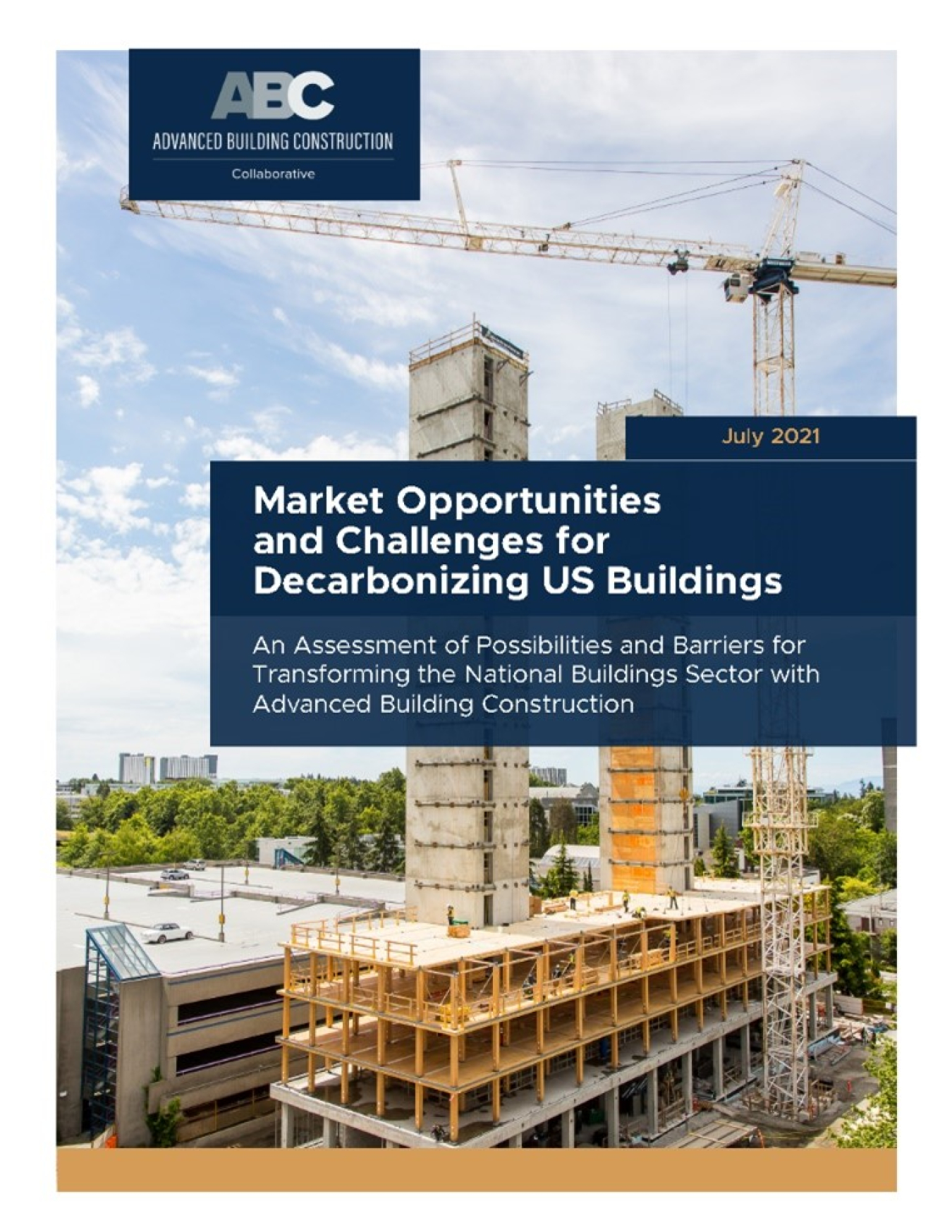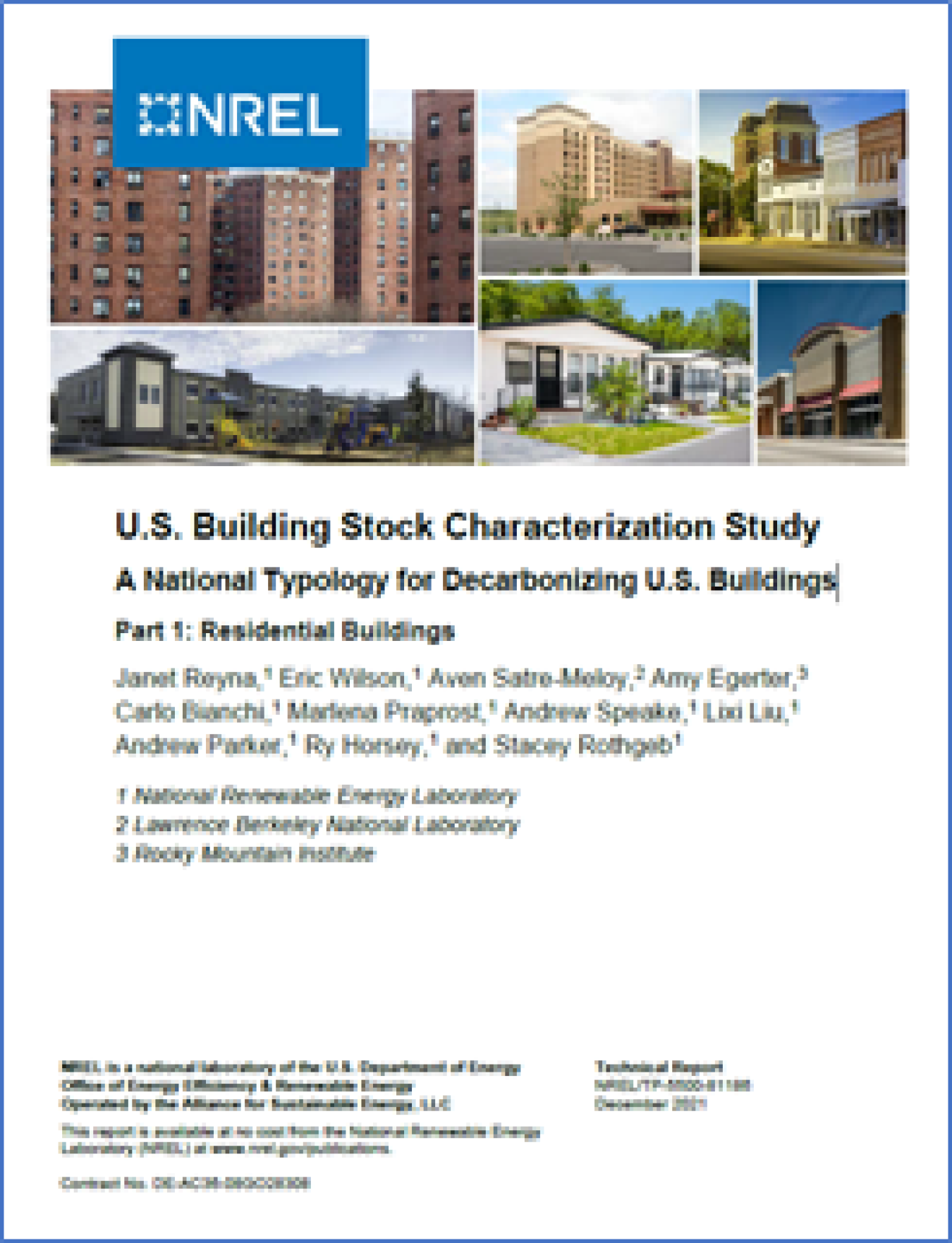Affordable, appealing, convenient, low-carbon, and energy efficient—this is the Advanced Building Construction (ABC) Initiative’s vision for new and modernized existing buildings.
February 24, 2022
Affordable, appealing, convenient, low-carbon, and energy efficient—this is the Advanced Building Construction (ABC) Initiative’s vision for new and modernized existing buildings. By using industrialized approaches in the design, construction, and renovation of buildings, the ABC Initiative is redefining how quickly and cost-effectively we can decarbonize our building stock. Pairing innovations like offsite factory construction with advanced building technologies like prefabricated high-performance wall panels and packaged HVAC and hot water pods, ABC enables rapid deployment of the advancements needed to decarbonize our buildings by 2050.
Given the significant challenges ahead, it is critical that investments are prioritized and based on a solid understanding of technical and market opportunities. Two studies, funded by DOE’s Building Technologies Office, provide a foundation for guiding ABC’s work. Market Opportunities and Challenges for Decarbonizing U.S. Buildings considers how market conditions will likely affect the viability of ABC approaches. Another new report by the National Renewable Energy Laboratory (NREL), U.S. Building Stock Characterization Study: A National Typology for Decarbonizing U.S. Buildings, helps answer questions like “Which building segments should be targeted first? What technologies are most appropriate given energy demand, costs, and other factors?” Together, these two reports are helping to inform ABC’s role in our national building decarbonization efforts.
Market Opportunities and Challenges for Decarbonizing U.S. Buildings is a culmination of rigorous market research conducted by the DOE-funded ABC Collaborative. The report illuminates the institutional barriers and market failures that have led to a U.S. buildings sector navigating challenges like declining construction productivity, supply chain disruptions, sharply climbing materials costs, insufficient affordable housing, and inadequate climate solutions. The authors delineate the advantages and challenges of a reimagined approach for transforming our nation’s buildings sector through advanced building construction.
Market Opportunities and Challenges offers several recommendations for the ABC Collaborative and its industry partners, including the following:
- Developing ABC-enabling finance and insurance products.
- Streamlining the regulatory and permitting landscapes.
- Engaging large portfolio building owners.
- Facilitating integrated supply chain project teams.
- Collecting and sharing data on industrialized construction capacity.
- Showcasing new technologies.
- Supporting a qualified and equitable ABC workforce.
- Creating a framework for cooperative, action-oriented stakeholder activities. The ABC Collaborative is already tackling this through the creation of topical stakeholder working groups.
The market report includes insights from a series of stakeholder interviews and an analysis and prioritization of states where ABC can gain early market traction, reduce emissions and building energy use, and encourage economic development. The market report recommends using these outputs as well as building stock characterization results, such as those from the NREL U.S. Building Stock Characterization Study, to further inform the ABC Initiative’s strategy.

The NREL characterization study – with the residential portion now complete and the commercial portion expected in spring 2022 – provides the first analysis of the energy loads of the U.S. building stock by building type and location. The characterization study has a number of potential use cases, but its primary intention is to help identify technology requirements and engineering solutions for moving the U.S. building stock toward a zero-carbon future by midcentury. It uses NREL’s ResStock™ model to segment the U.S. housing stock into 165 subgroups based on climate zone, wall structure, housing type, and year of construction. It then quantifies thermal energy use (the energy used for spacing heating and cooling, ventilation, and water heating) by end use and segment to identify which segments and technologies are best to target for energy efficiency and electrification upgrades. An online dashboard accompanies the report, which allows users to customize building segments and explore various building characteristics within a segment in more depth.
Both the market report and characterization study serve important roles in charting a path forward for ABC. They will be used alongside other analysis efforts to inform the development of market aggregation strategies and business models for accelerating adoption of ABC approaches to building decarbonization.
Want to dig a little deeper? Download the market insights report here and the characterization study here. To learn more about the ABC Collaborative and how you can get involved in decarbonizing our nation’s buildings, reach out to the Collaborative team.

